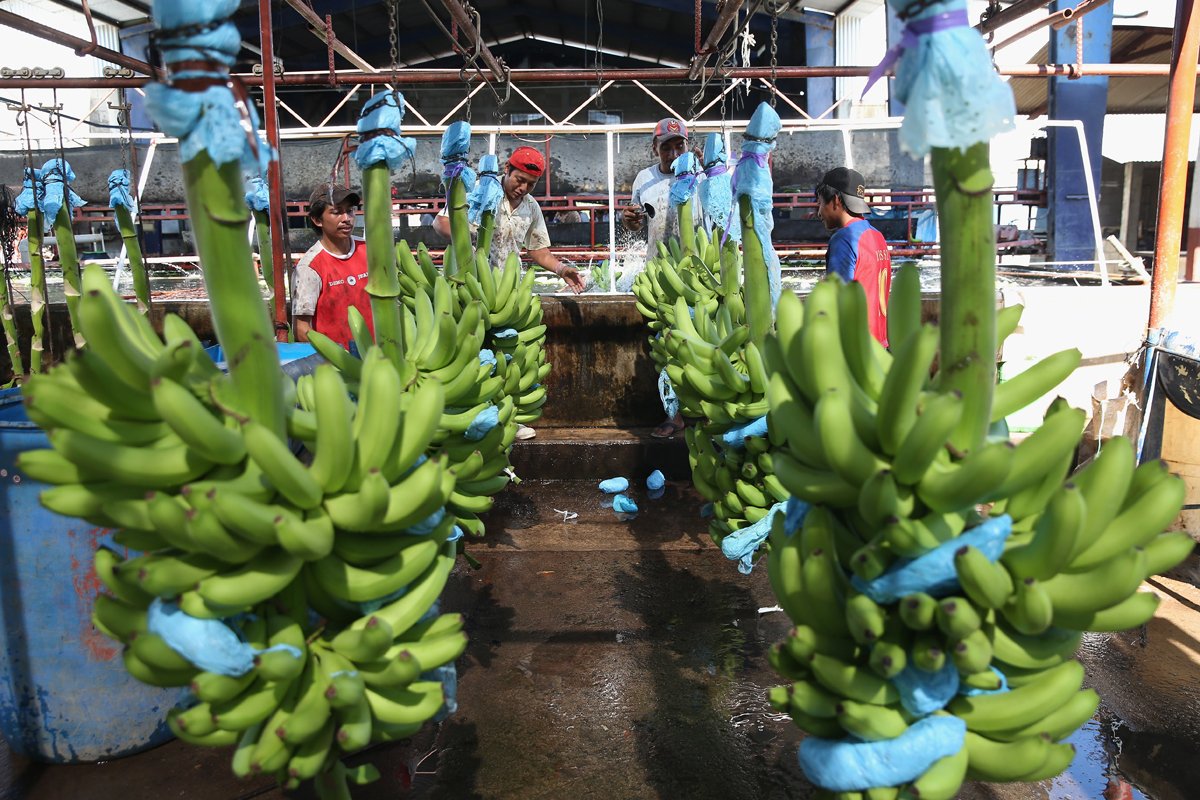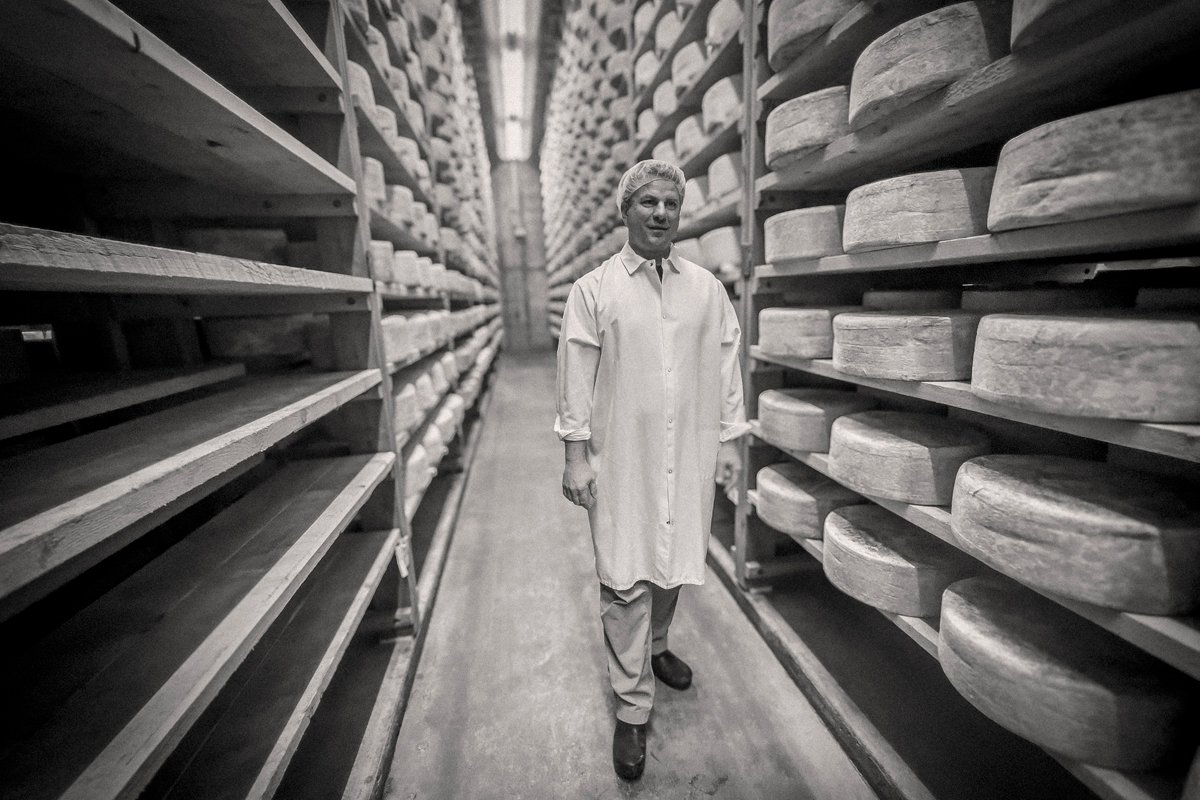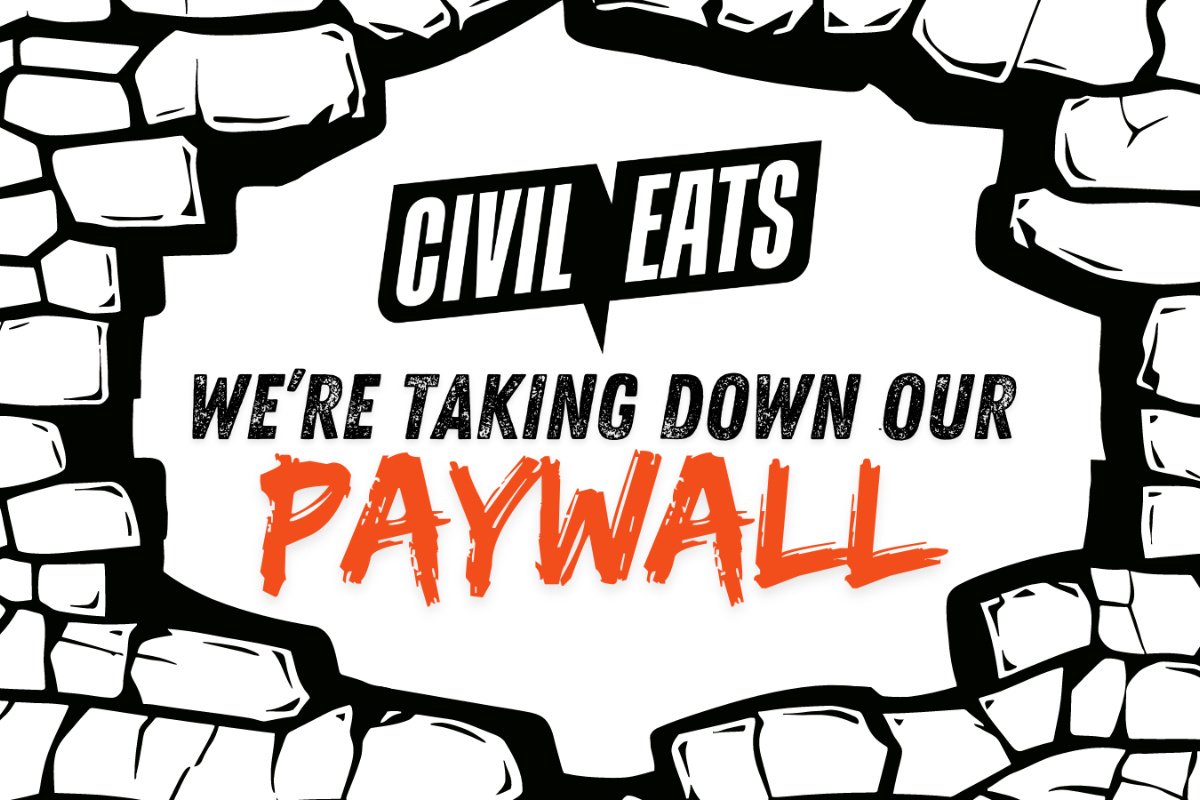Also in this week’s Field Report: Wildfire smoke health updates and corn farmers challenge vehicle emission standards

Also in this week’s Field Report: Wildfire smoke health updates and corn farmers challenge vehicle emission standards
June 25, 2024

Workers unload green bananas for washing at the Santa Cruz banana plantation in Ciudad Hidalgo, Chiapas, Mexico. The fruit from the plantation in the Mexican state of Chiapas is harvested year round and shipped to clients in Mexico and the United States, including Chiquita, the leading American banana distributor. (Photo credit: John Moore/Getty Images)
There is no justice for the families of massacred banana workers in Gabriel García Márquez’s One Hundred Years of Solitude. Their deaths are only remembered by the massacre’s sole survivor, José Arcadio Segundo, who spends the rest of his life trying to convince others in his town of what he witnessed. In the book’s final scene, even the town is “wiped out by the wind and exiled from the memory of men.” The fictional banana company’s power is so vast that it can bend history and memory—and murder its workers with impunity.
The novel is a parable for how the United Fruit Company, the U.S. multinational giant that rebranded as Chiquita in 1990, sustained its banana plantations across Latin America through ruthless, bloody tactics, confronting consequences only rarely. The fictional massacre is based on real events: In 1928, Colombian troops killed striking United Fruit Company workers in a town not far from where Márquez grew up.
Despite this history, the banana giant’s pattern of violent repression wiped out by the wind has arrived at a new chapter.
After a 17-year legal struggle, survivors of Chiquita’s violence in Colombia received a rare, groundbreaking legal victory. A South Florida jury found the U.S.-headquartered agribusiness liable for financing murders carried out by the right-wing paramilitary group Autodefensas Unidas de Colombia (AUC) between 1997 and 2004.
During these years, Chiquita secretly paid upwards of $1.7 million to the AUC, a designated terrorist organization, to act as a security force pacifying the banana-growing region in the midst of Colombia’s decades-long civil war.
This marks the first time a U.S. court held a corporation liable for human rights abuses committed in another country—which lawyers and advocates describe as a historic legal milestone against transnational corporate abuse.
“The level of this victory is so great,” said Charity Ryerson, a human rights attorney and the executive director of Corporate Accountability Lab. “I hope that we spend the next three decades unpacking what this means, and that it spurs many, many, many additional cases on this basis, so that we can try to redevelop an area of law that does actually keep up with globalization and really protects the people who are most vulnerable.”
The U.S. legal system has not kept up with the globalization of the economy, Ryerson continued, resulting in few legal mechanisms to address transnational corporate abuse, including the absence of a comprehensive U.S. federal statute. Even when U.S. corporations are under fire in a lawsuit, cases involving transnational crimes can be dragged out for decades and historically have evaded a public trial before a jury and a verdict.
“These big companies usually involved in horrific acts in other countries often settle rather than have those facts see the light of day in court,” said Marissa Vahlsing, a lawyer with EarthRights International, which represented the plaintiffs.
In this case, “[Chiquita] tried every defense under the sun,” she said. “They tried to bring it to Colombia. We had to fight for years to keep this in American courts. I think that they felt the plaintiffs would just get tired and the lawyers would get tired and give up.” But they didn’t. “It was a very tiring case, and we’re not done,” Vahlsing said.
The jury ordered Chiquita to pay the family members of eight victims a total of $38 million for its crimes. This is just one of many cases representing thousands of victims—the families of banana workers, social activists, and union organizers—seeking to hold Chiquita accountable for murders in partnership with the AUC. The plaintiffs include many wives and children of the men killed, who often “had to leave their homes, leave their farms, move to cities, take refuge somewhere,” said Vahlsing. “Their lives were turned upside down.”
Beyond its direct effect on its employees and their families, the United Fruit Company has been described as a “pioneer of capitalist globalization,” developing a business model for global, multinational food corporations operating often in resource-rich and poverty-stricken regions of the Global South. This model has continued to be linked to violence and horrific abuses and is rarely held accountable, let alone put on trial before a jury. Still today, many of the largest U.S. food corporations have subsidiaries or parts of their supply chain associated with ongoing human rights abuses.
For instance, the production of cocoa in the Ivory Coast has a long history of documented human rights abuses, including child slavery on the plantations that supply Mars, Nestlé, and Hershey, prompting a 2023 federal lawsuit against the Biden administration. In Indonesia, the supply of palm oil to U.S. commodity traders ADM and Bunge has been linked to deforestation, violent confrontations with state security forces, and land grabs. More recently, an investigation by The New York Times found that PepsiCo supplies its sugar from plantations in India that push young girls into receiving hysterectomies and entering into child marriages to work alongside their husbands in the fields.
The recent verdict illuminates one pathway—a feasible legal avenue for comparable cases—for holding U.S. corporations accountable for human rights abuses abroad. The case was litigated in the U.S. under Colombian law, relying on the bedrock legal doctrine that a U.S. court can hear a defendant in their jurisdiction for crimes anywhere in the world. It’s one of few legal options, following a 2013 Supreme Court decision limiting the capacity for cases of international corporate abuse to be heard under federal law.
“[The Chiquita verdict] helps reinforce that there’s no law-free zone,” said Agnieszka Fryszman, a human rights lawyer with Cohen Milstein, which represented the plaintiffs. “If companies are operating overseas, in an area where there’s a weak rule of law and weak institutions, they could still be held to account here in their home state and home jurisdiction.”
Read More:
Diving—and Dying—for Red Gold: The Human Cost of Honduran Lobster
Environmental Defenders—Often Fighting Agribusiness—Are Being Violently Silenced Around the World
Wildfire Smoke Is a Health Emergency. The devastating health impacts of wildfire smoke are becoming clearer. A recent study, published in Scientific Advances, found that fine particulate matter from California’s wildfires led to between 52,500 and 55,700 deaths between 2008 and 2018. “These are very irritative, very small particles that could cause damage wherever they go in the body,” Dr. Thomas Dailey, who works in pulmonary medicine at the Kaiser Permanente Santa Clara Medical Center, told CBS News. These health risks are concerning for farmworkers who work long hours outdoors, often with no guaranteed protections. Currently, only three states—California, Oregon, and Washington—have regulations to safeguard workers from wildfire smoke exposure.
Read More:
How Centuries of Extractive Agriculture Helped Set the Stage for the Maui Fires
What Impacts Do the West Coast Wildfires, Smoke Have on Crops?
Farmers Challenging Vehicle Emission Standards. Both the National Corn Growers Association and American Farm Bureau Federation are part of a new lawsuit challenging the U.S. Environmental Protection Agency’s rule for heavy-duty vehicle emissions standards, which aims to curb smog, soot, and greenhouse gas emissions. The groups claim that the standards transition to electric vehicles will cause economic harm, while leaving out the role of ethanol in lowering emissions from vehicles. It’s not a surprising claim coming from the National Corn Growers Association, which represents farmers growing the corn that is used to produce ethanol, a controversial biofuel.

September 4, 2024
By paying top dollar for milk and sourcing within 15 miles of its creamery, Jasper Hill supports an entire community.
September 3, 2024

August 27, 2024

August 26, 2024

Like the story?
Join the conversation.